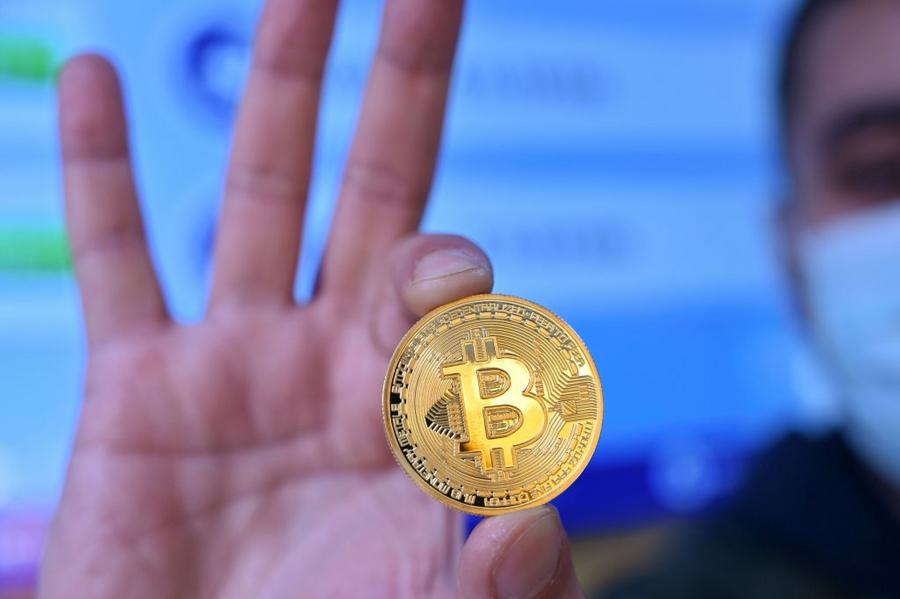How far would you go to recover $280 million? That's the question facing 35-year-old James Howells, an IT engineer from Wales. Eight years ago, he accidentally threw out a hard drive with $280 million bitcoin on it. How did this happen? And, perhaps more importantly, how are we hearing of all sorts of people suddenly in this predicament? Well, bitcoin may be on a tear lately, but it wasn't all that long ago that many people didn't believe bitcoin would ever amount to much. With Howells, it was a case of mistaken identity – he had two laptop hard drives that were exactly the same. One had the private key to access his bitcoin on it and the other did not. He accidentally threw away the one with the key to the bitcoin on it. Now, nearly a decade later, he is still trying to convince the officials in his city to let him search the landfill site he believes the hard drive is at.
Howell believes that although the exterior of the hard drive is likely rusted and ruined, the interior guts of it may still be salvageable. The discarded hard drive has 7,500 bitcoins on it, which today would be worth more than $280 million. Because of the way cryptocurrency is structured, the only way to recover his bitcoin is to find the hard drive he threw out in 2013. In order to dive into the landfill in search of the hard drive, Howells needs permission from his local city council since the landfill is not open to the public and trespassing would be a criminal offense.

OZAN KOSE/AFP via Getty Images
In order to make it more attractive to the city council, he's offered to donate 25% of his bitcoin to his city to establish a Covid Relief Fund if he is able to find the hard drive. He has also committed to finding the excavation project to find it, reportedly thanks to the backing of a hedge fund. However, so far, the city council isn't interested in allowing Howell to look for the hard drive. The council noted environmental and funding concerns for their denial of Howells' request. This frustrates Howell, who hasn't even had the chance to present his plan and let the council know he's well-funded to take on this mission.
Howells has made his plea to the city council several times. The first time was just a few months after he first realized he had discarded the wrong hard drive. The city council has told Howell that there are a number of reasons they have refused his request – the largest being that an excavation would have a huge environmental impact on the area. The council also cited the cost as well as the issues of storing and treating the garbage that is dredged up. The city council believes the total cost could run into the millions – with no guarantee of Howells finding the hard drive or if he did, of it still working.
Bitcoin prices have skyrocketed over the past few months. The cryptocurrency recently hit an all-time high of $42,000 per coin. As of this writing, bitcoin is worth $35,200 per coin. Without the "key" on that lost hard drive, there is no way for Howells to access his stash of bitcoin. The cryptocurrency runs on a decentralized network and there is no way to retrieve a lost password as there is with traditional banks and financial companies like PayPal and Venmo.
/2017/12/GettyImages-887657598.jpg)
/2021/01/GettyImages-887657568.jpg)
/2018/12/GettyImages-887657568.jpg)
/2017/12/bit.jpg)
/2021/02/GettyImages-1230175365.jpg)
/2017/06/bitcoin.jpg)
/2019/01/James-Altucher.jpg)
/2013/12/dan.jpg)
/2011/12/John-Mara-1.jpg)
:strip_exif()/2020/06/taylor.png)
/2010/12/kate-1.jpg)
/2020/10/the-miz.png)
/2011/12/Rooney-Mara1.jpg)
/2020/08/gc-1.jpg)
/2014/04/GettyImages-886617106.jpg)
/2011/01/Aaron-Rodgers.jpg)
/2022/10/peter-krause.jpg)
/2010/03/emil.jpg)
/2020/04/hailey-joel.png)
/2015/09/Daley-Thompson.jpg)
/2020/10/david.jpg)
/2009/11/Brandon-Jennings.jpg)
/2019/01/Kennedy-Montgomery.jpg)